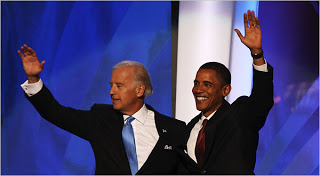Over the past few months it seems I have heard no end to examinations of Barack Obama’s Christian faith. The remarks of his former pastor Jeremiah Wright have fueled a firestorm of criticism and investigation into exploring what Senator Obama’s faith is composed of.
In his address entitled “Call to renewal” Senator Obama sets out to “reconcile faith with our modern, pluralistic democracy.” In this speech Obama relates his personal journey to Christianity, and responds to critics of his faith. Although in general I found the speech to be both compelling and inspiring there was a line that stuck out to me. Senator Obama posits that, “Democracy demands that the religiously motivated translate their concerns into universal, rather than religion-specific, values.” This statement articulates an attitude the Senator has that I find much more troubling then his connection with Rev. Wright.
This concern was underscored again for me last Thursday when Obama delivered his speech, “The American Promise,” at the Democratic Convention in Denver. There he mentioned a number of “universal values” we can “all agree” on stating, “We may not agree on abortion, but surely we can agree on reducing the number of unwanted pregnancies in this country.” Although I personally agree with him there, I know a number of Catholics who would be very wary of signing onto that mission. That night Senator Obama stated,” I don’t believe that Senator McCain doesn’t care what’s going on in the lives of Americans. I just think he doesn’t know.” Although I believe this criticism to be accurate when examining McCain’s economic policy, when it comes to Obama’s own reading of the national pulse on issues of faith, the same criticism can be applied. Obama talks about a “higher purpose,” as our “common purpose,” which is a great thought. The only problem is when it comes to what individuals see as a “higher purposes” there is nothing “common” about them.
The nuances of different religions are so sensitive, polarizing, and often paradoxical that attempts to distil them into “universal values” exhibit the same naivety that has been demonstrated by our nation so many times already. Osama Bin Laden orchestrated his attacks on US civilians, not out of a hate for freedom, but as a retaliatory measure in response to our our stationing of troops in Muslim Holy Land, which violated specific laws within Islam.
Whether we like it or not, understanding the faiths of our world, in their beauty, in their darkness, and in the tension of their mysteries is essential in the increasingly global system in which we find ourselves. Living in a pluralistic society does not mean we should abandon the beauty of our religious or non-religious traditions to create a melting pot of faiths, freedom of religion is not contingent on sacrificing the nuances of our theologies for feel good platitudes, and contrary to what Senator Obama seems to think Democracy does not “demand” articulation of universal values, but an equal voice for all, even if it offends our own sensitivities. When we flatten our beliefs into universals, at best, we are left with the lowest common denominator, and in all likelihood we will construct a caricature of the faiths around us that leave us baffled when they don’t fit the mold we attempt to force them into. A society with “universal values” sounds nice in speeches,but I am truly worried about what response this attitude will generate if it ever becomes the basis of national policy.













